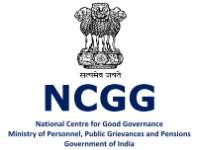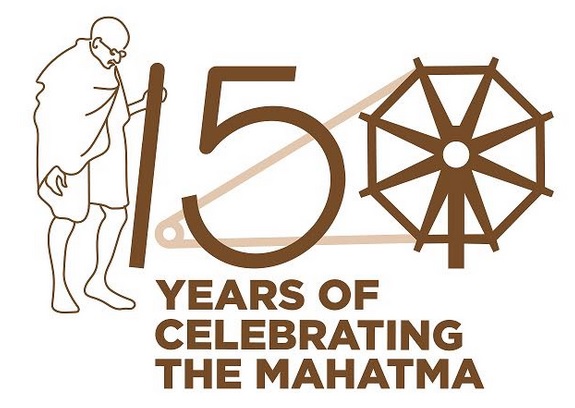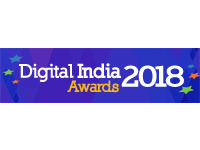E-Governance from the citizens perspective
Knowledge Partner: KPMG
Venue: Birla Auditorium, Jaipur
Date and Time: February 18, 2010 17:30 Hrs
KPMG Representative: Mr. Navin Agarwal, Executive Director, e-Governance Advisory
Moderator: Mr. R. C.Mishra, Secretary, Department of Administrative Reforms and Public Grievances and Pensions, Government of India
Venue: Birla Auditorium, Jaipur
Date and Time: February 18, 2010 17:30 Hrs
KPMG Representative: Mr. Navin Agarwal, Executive Director, e-Governance Advisory
Moderator: Mr. R. C.Mishra, Secretary, Department of Administrative Reforms and Public Grievances and Pensions, Government of India
Panel Members:
- Mr. Prithiviraj Chavan, Hon’ble Minister of State (Ministry of Personnel, Public Grievances and Pensions, Ministry of Science and Technology, Ministry of Earth Sciences, Ministry of Parliamentary Affairs), Government of India
- Dr. Jitendra Singh, Hon’ble Minister of Energy and Non-Conventional Energy Resource, Information Technology and Communication, Government of Rajasthan
- Mr. S. R. Rao, Additional Secretary, Department of Information Technology, Government of India
- Mr. Russel Craig, Vice-President, CISCO
- Mr. Siddharth Shankar (President, Drishti)
A. Opening presentation by Shri Navin Agarwal
- On behalf of KPMG, he expressed his gratitude to DAPRG and DIT, GoI for giving KPMG the opportunity to be the Knowledge Partners for the Conference as well for entrusting with the responsibility of defining the theme for the opening session.
- Explaining the underlying principle for the session theme selection, he mentioned that there is an imperative need to capture the experiences and perspectives of the common man, who is often considered as the last-man-in-queue to derive benefits from e-Governance initiatives. ICT is merely an enabler and for e-Governance initiatives to be successful, it is important to take in to account the perspectives of the citizens.
- He emphasized that e-Governance has helped reduce the rural vs. urban disconnect considerably. The ultimate objective of such initiatives would be to see whether they can bring some improvements as well in the lives of both rural and urban citizens. What direction do we proceed towards and dictating what the future should hold for us is critical presently, and therefore we must lay enough emphasis to tread carefully.
- He proposed the following 3 topics to be deliberated and discussed by the panel members during the course of the session:
- Need to improve the efficiency of the processes
- Need to prioritize the various activities in the processes
- Devising a feedback mechanism to capture citizens’ perspectives and ensure that benefits percolate to the lower levels of the society
- Further, he opened the session for debate and discussion on the above mentioned topics.
B. Points contributed by Shri R.C. Mishra
- He acknowledged the significance of the theme and mentioned that e-Governance programs / projects would be considered successful only if they make the life of the citizens easier and happier.
- He highlighted that one should not look at e-Governance as mere computerization; it should be looked at as a means to review existing processes, change them appropriately to make the job/task easier, thereby simplifying the overall workflow with the fundamental aim of improving service delivery to the citizens.
- He mentioned that there is a lack of focus on developing mechanisms to track the success of many of the e-Governance initiatives that have been implemented in the country.
- He felt that increasing the awareness about e-Governance among the rural citizens could be important to bridge the rural-urban disconnect.
C. Points contributed by Shri Prithviraj Chauhan
- Hon’ble Minister pointed out that the purpose of the Conference is to facilitate a gathering of important stakeholders to discuss and deliberate about existing issues/challenges, take learning from Best Practices followed by other entities and ensure successful implementation of e-Governance initiatives to ensure that they bring about a significant change in the society.
- He highlighted that in various projects, we end up re-inventing the wheel because best practices are not shared very effectively. We also need to learn that a successful e-Governance project is not all about deciding the right hardware or software platform; one has to look at it more holistically and take cue from similar successful endeavors.
- He emphasized on the need to develop suitable mechanisms to solicit and monitor feedback from the citizens – the end beneficiaries of the projects.
- He mentioned that one needs to be more diligent in choosing the right product/package for their e-Governance project; for instance a catalog could be prepared for different software applications and a comparison could be made based on their features and utilities.
- Hon’ble Minister further highlighted the need to adhere to standards / guidelines for various project components – an important tone being the website. Most government Websites do not adhere to the standard guidelines issued by NIC, which in turn are based on International Standards. With respect to web guidelines, the following activities need to be undertaken:
- Websites to be made user friendly for differently abled citizens
- The user interfaces need to be standardized
- The website needs to be made technology neutral
- He emphasized on the need to develop a robust and sustainable revenue model for e-Governance projects based on Public-Private-Partnership (PPP) model. Ensuring transparency and fairness in the charges collected by the Service Providers is critical which can be achieved by appointment of a Regulator. Having a stable revenue model would ensure that the citizens pay the minimum appropriate charges for availing the services.
- He also felt that e-Governance should create some impact on the literacy aspect as well in the country.
D. Points contributed by Dr. Jitendra Singh
- Hon’ble Minister started by mentioning some of the steps that Rajasthan has taken in the recent past which has helped change its image from a "Backward State" to "Progressive State" which believes in adopting IT for the good of various stakeholders. He also discussed some of the initiatives in detail and urged contribution and investment from external entities in the State government’s initiatives owing to the availability of infrastructure and all round socio-economic progress.
- He mentioned some key developments in the space of mobile communications including tele-medicine and Video Conferencing which have resulted in the benefits of e-Governance reach the beneficiaries faster.
- He felt that most of the e-Governance initiatives could be looked at as unaccomplished missions. There is an immense need to work together as a team and make sure that at the grassroots level, we make a common man also understand the working of IT systems.
- He emphasized on the importance of tackling challenges to deliver the expected full benefits of e-Governance projects.
- He discussed about the recent progress made by the State government in various vistas leveraging the support of ICT.
E. Points contributed by Shri Russel Craig
- He admitted his admiration for India’s Socio-Economic progress with the successful use of ICT and remarked that if India continues this momentum, then in the not-so-distant future, the country will surely be recognized as an e-Governance Superpower as well.
- He emphasized on the need to adopt a Citizen-Centric approach in the design of services. An Outside-In approach incorporating the needs and concerns of the citizens at every stage in the process and service delivery workflow needs to be adopted.
- He illustrated the success of an e-Governance project in Philippines for Pensions.
- He also emphasized the need for all governmental Websites to adhere to standard web guidelines. The efficacy of the Websites of the New Zealand governmental departments was a case in point that he described.
- He mentioned that citizens generally do not prefer to interact with the government officials unless in case of transactional interactions. It is therefore necessary to listen to their concerns and address them suitably. Ascertaining the service delivery process at the ground level in an effective way to handle this.
- He stressed on the need to define measures to ascertain fairness, timeliness and quality of the service delivery process by soliciting user feedback and making changes, wherever deemed fit.
- He shared his Golden Rule based on his past experience in the e-Governance field. He emphasized that broken processes need not be automated. Most of the government laws and orders were formulated before ICT acquired stature as it has today. Hence, there is a need to undertake extensive Business Process Re-engineering initiatives to revamp the existing processes and bring them in tune to ICT’s offerings. To drive home the point, he shared the steps taken by the New Zealand government to do away with the process of filing Income Tax Returns since tax being already deducted at Source.
F. Points contributed by Shri Siddharth Shankar
- He emphasized that citizens do not demand much from the government except for few basic facilities.
- He mentioned that the entire ecosystem is important for a project to succeed. Often, with change in ownership, projects go haywire and don’t see the light of the day. Therefore, it is important to understand this ecosystem while formulating e-Governance initiatives and build trust among the masses about the sustainability of the initiatives.
- He acknowledged the importance of Common Service Centres (CSC) and Kiosks in rural areas. For the rural citizens, the CSC or Kiosk Operator is the human-face, lending them a helping hand in their endeavor to avail G2B/G2C services.
- He remarked that in the design of the service delivery process, it is important to make a note of the time taken for processing the transactions and the same has to be reduced for increased efficiency.
- He mentioned that since in rural areas, citizens are still not aware of the concept of e-Governance, hence, there is a greater need to bring about awareness about e-Governance among the masses through promotional activities and public campaigns.
- He emphasized the need for simplifying the processes in government departments and entities; e.g. by empowering the Panchayati Raj Institutions at the rural level. This would save the government valuable money otherwise being utilized by unwanted processes.
- He briefly also touched upon the need to augment capacity building activities at the grass root level. The Village Level Entrepreneurs need to be imparted the right kind of training to execute their responsibilities. BPOs could be set up in the rural areas to generate employment for local citizens. Jobs like digitization of data could be outsourced to such Rural-BPOs.
G. Points contributed by Shri S. R. Rao
- Addressing the concern that the Rajasthan government has not received any award this year for e-Governance initiatives, he mentioned that the e-Sanchar project, a recent initiative by the State government, is one of the best projects undertaken in recent times. Under this initiative, beneficiaries are informed about the disbursement of their pension through a voice message. This technology-neutral project has empowered the illiterates to avail their dues on time. The project could not be considered for this year’s award nominations as it is yet to complete the mandatory 1-year period of sustainability.
- He complimented the State government for displaying exemplary vision in formulating the 3% Budget Plan thereby making it compulsory for all the departments to earmark 3% of their annual budget towards e-Governance initiatives. Additionally, it is mandatory for all the departments to roll out at least 2 G2C services per year through the use of ICT.
- He emphasized that the role of the citizen is to create a Pull-Force in the Service Delivery mechanism. AS-IS study of the existing processes cannot be done in a central office. It is to be undertaken at the field level. Extensive interaction with the citizens is of prime importance in the design of the bouquets of G2C services.
- On the aspect of devising feedback mechanism and measures, he mentioned about a Stratified Study conducted by IIM-A. The study aimed to statistically bring out the waiting period for the transaction, quality and level of corruption in the service delivery mechanism. The study was conducted for three State government initiatives (Driving License, Land Records and Land Registration) across 8 states in the country. An important inference from the study was that the level of corruption was low where citizens were involved in the conceptualization of the service.
- He also mentioned about the changing attitude of the rural masses towards computerization. This was illustrated with the case where a poor mother from Rajasthan’s Jaisalmer district is more than willing to send her children to a private school charging a monthly fee of Rs. 15/- and having IT infrastructure over a government school imparting free education.
- Shri Rao mentioned that all e-Governance initiatives need to be supported by adequate capacity building activities, targeted at stakeholders at all three levels – leadership (elected members), managerial (higher departmental officers) and operational (the department’s team members involved in the day to day activities).
- Lastly, he stressed on the need to make provision of local language content/fonts on Websites. This should be available free of cost and at the same time ensured that it is not exploited for commercial interests.

















